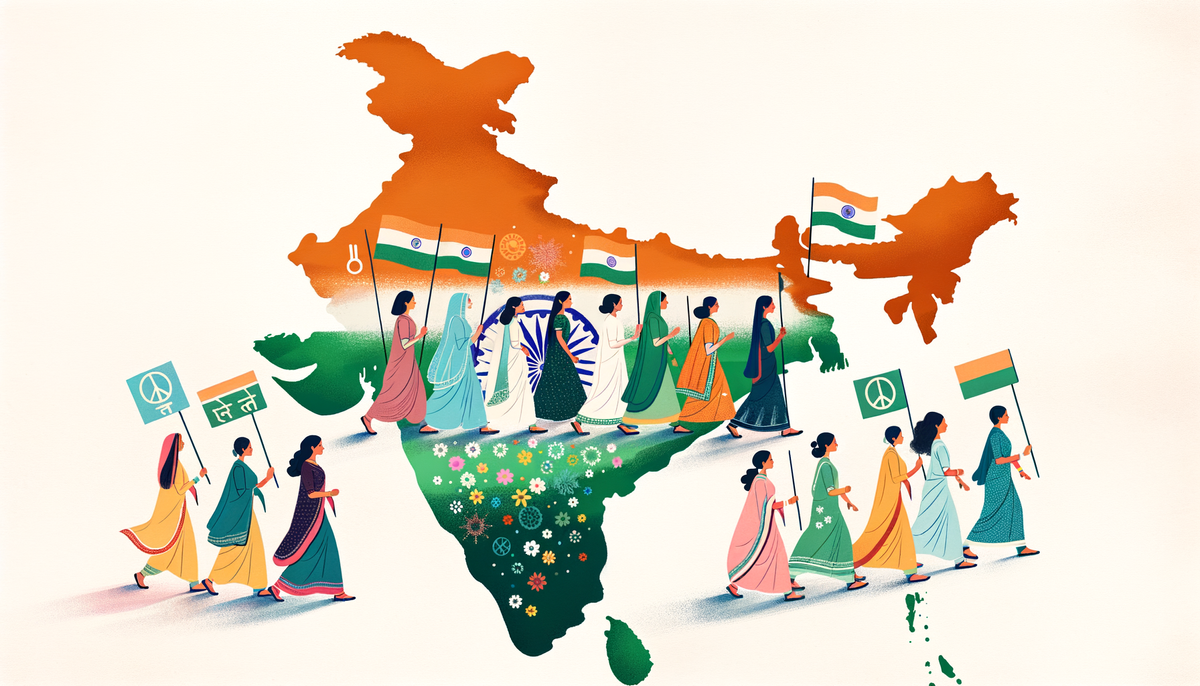The Role of Women's Movements in Shaping Modern India's Geopolitical Landscape
Explore how women's movements have played a pivotal role in shaping modern India's geopolitical and social landscape through education, legal reforms, and economic contributions.

Introduction
Women's movements have played a critical role in molding the social, economic, and political fabric of modern India. From fighting for suffrage to advocating for gender equality in workplaces, women have been at the forefront of transforming Indian society. This article delves into how these movements have influenced India's geopolitical landscape, fostering unity and acting as a catalyst for change.
A Rich History of Activism
India's women's movements have a rich history that dates back to the 19th century. Pioneers like Savitribai Phule and Tarabai Shinde challenged societal norms, laying the foundation for future activism. These early movements focused on education and social reforms, which were essential for women's upliftment. The involvement of women in the national freedom struggle added another layer to their activism, highlighting their remarkable ability to work collectively for a larger cause.
Empowerment through Education
One of the most significant achievements of women's movements in India has been the emphasis on education. Education empowers women, giving them the tools to break free from the shackles of gender inequality. As we delve into India's size and location, it's clear that educational reforms have not only benefited women in metropolitan areas but also in rural parts of the country. This widespread educational empowerment has created a more informed and vocal female populace, ready to challenge injustices.
Legal and Political Achievements
Women in India have made significant strides in the legal and political arenas. Laws against domestic violence, dowry, and workplace harassment have been enacted due to sustained campaigns by women's groups. Additionally, the increased participation of women in politics, from local panchayats to national parliament, has ensured that women's issues receive the attention they deserve. This political activism has redefined India's geopolitical landscape, making it more inclusive and democratic.
Economic Contributions
Greater participation in the workforce is another triumph of women's movements. Women have not only contributed to traditional sectors like agriculture and textiles but have also made significant inroads into sectors such as IT, finance, and science. The economic independence that comes with employment has empowered women to make autonomous decisions, further enriching India's diverse economic landscape.
Conclusion
In conclusion, women's movements have been instrumental in shaping modern India's geopolitical and social landscape. The fight for gender equality has not only uplifted women but has also contributed to a more equitable and progressive society. As we continue to push for further advancements, it's crucial to remember and celebrate the achievements of these movements, recognizing their pivotal role in creating a better India for all.



